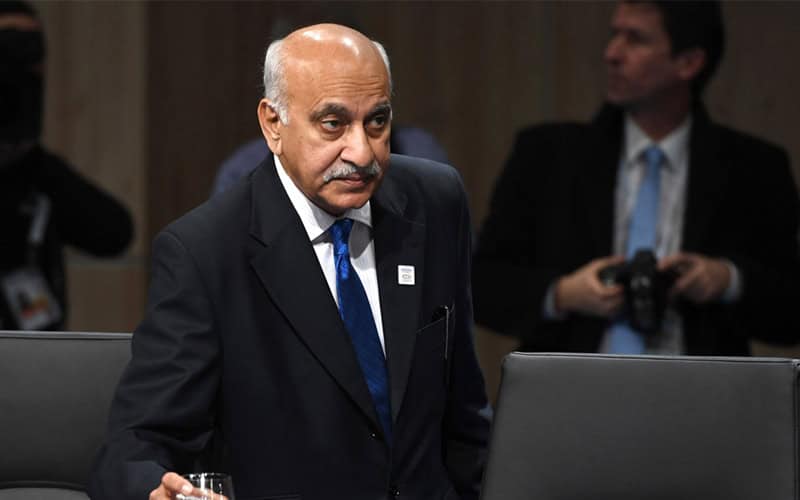NEW DELHI: MJ Akbar, who resigned as union minister amid sex harassment allegations raised in the #MeToo campaign in India, testified in court today, in the defamation case he has filed against journalist Priya Ramani. Mr Akbar wasn’t present when a Delhi court took up his case on October 18, a day after his exit from the government.
“I have filed a criminal defamation complaint against Ms Priya Ramani for a series of tweets that she published. The first one that came to my notice was on my return from an official tour from Africa. The offending portion is the text of her tweet,” Mr Akbar told the court. He cited a number of tweets by Ms Ramani from Oct 10 to 13, and an article published in Vogue in 2017 and claimed that “it had a history”.
MJ Akbar in his statement said that the “opening sentence of the tweet explained one anomaly. When the article was published in Vogue in 2017, it did not include my name. When Ms Ramani was asked why my name was not included, she said it was because I had done nothing.”
Ms Ramani was the first woman to name Mr Akbar as the #MeToo campaign gathered pace in the country last month. The veteran newspaper editor has been accused by 20 women of sexual misconduct during his stint in The Telegraph and The Asian Age.
Mr Akbar has accused Ms Ramani of “intentionally putting forward malicious, fabricated and salacious” allegations to harm his reputation.
After resigning as junior foreign minister on October 17, Mr Akbar said in a statement, “Since I have decided to seek justice in a court of law in my personal capacity, I deem it appropriate to step down from office and challenge false accusations levied against me.
Ms Ramani said she was ready to fight the defamation complaint and “truth and the absolute truth is my only defence”. Women who have spoken against Mr Akbar “have done so at great risk to personal and professional lives,” she said.
After Ms Ramani more women posted allegations against Mr Akbar. The list includes Prerna Singh Bindra, Ghazala Wahab, Shutapa Paul, Anju Bharti, Suparna Sharma, Shuma Raha, Malini Bhupta, Kanika Gahlout, Kadambari M Wade, Majlie de Puy Kamp and Ruth David.
The MeToo movement, which began in the United States more than a year ago after the Harvey Weinstein scandal, gained traction in India in September, days after former actor Tanushree Dutta accused her co-star Nana Patekar of sexual harassment. Since then, several men in the media, entertainment, political and art worlds have been accused of offences ranging from sexual harassment to rape.

